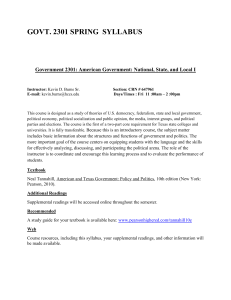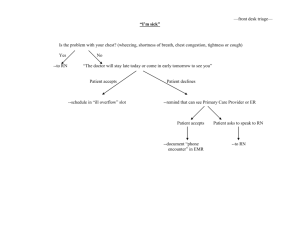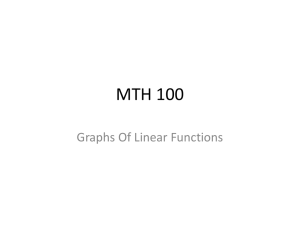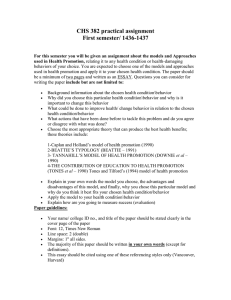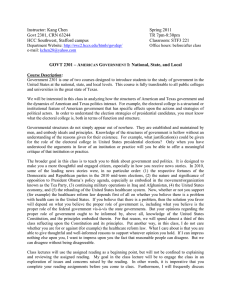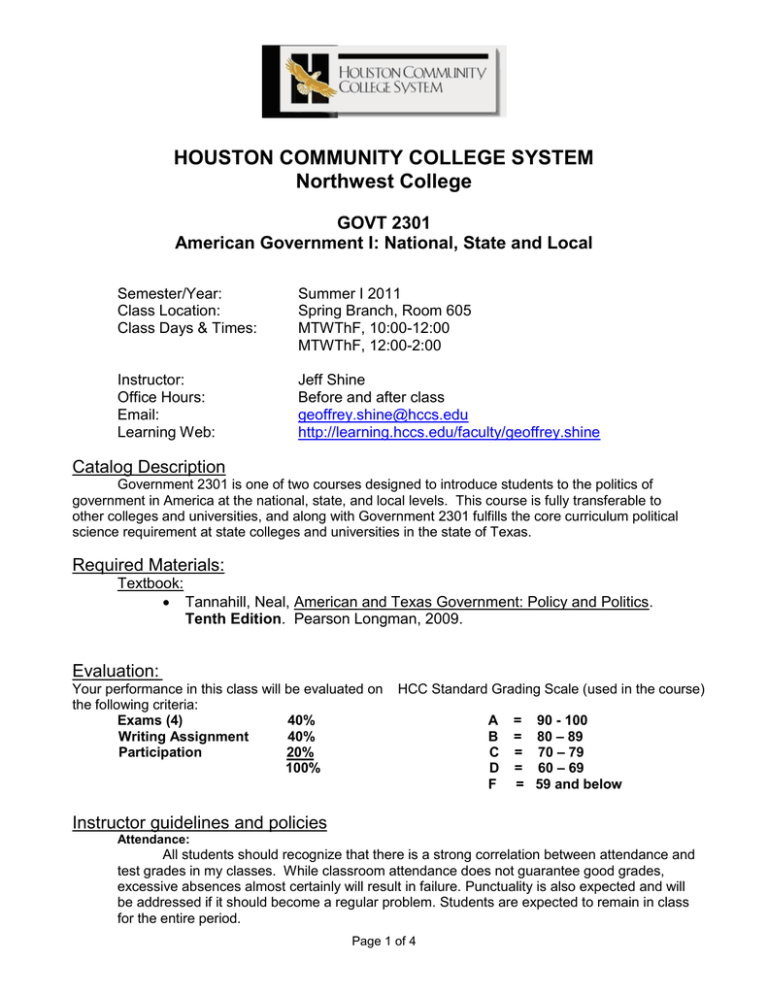
HOUSTON COMMUNITY COLLEGE SYSTEM
Northwest College
GOVT 2301
American Government I: National, State and Local
Semester/Year:
Class Location:
Class Days & Times:
Summer I 2011
Spring Branch, Room 605
MTWThF, 10:00-12:00
MTWThF, 12:00-2:00
Instructor:
Office Hours:
Email:
Learning Web:
Jeff Shine
Before and after class
geoffrey.shine@hccs.edu
http://learning.hccs.edu/faculty/geoffrey.shine
Catalog Description
Government 2301 is one of two courses designed to introduce students to the politics of
government in America at the national, state, and local levels. This course is fully transferable to
other colleges and universities, and along with Government 2301 fulfills the core curriculum political
science requirement at state colleges and universities in the state of Texas.
Required Materials:
Textbook:
Tannahill, Neal, American and Texas Government: Policy and Politics.
Tenth Edition. Pearson Longman, 2009.
Evaluation:
Your performance in this class will be evaluated on
the following criteria:
Exams (4)
40%
Writing Assignment
40%
Participation
20%
100%
HCC Standard Grading Scale (used in the course)
A
B
C
D
F
= 90 - 100
= 80 – 89
= 70 – 79
= 60 – 69
= 59 and below
Instructor guidelines and policies
Attendance:
All students should recognize that there is a strong correlation between attendance and
test grades in my classes. While classroom attendance does not guarantee good grades,
excessive absences almost certainly will result in failure. Punctuality is also expected and will
be addressed if it should become a regular problem. Students are expected to remain in class
for the entire period.
Page 1 of 4
Assignments:
Your performance in this class will depend in large part on your preparation,
attendance and participation. Students are expected to attend class regularly, having read and
studied the material assigned for that class meeting. It is imperative that you keep up with
class readings in order to get the most benefit out of this course.
Exams: There will be 4 exams over the course. Each will cover one section of the course and
none will be comprehensive. The average of your exam grade will constitute 40% of your overall
course grade.
Paper: You will have a semester paper assignment that will represent a total of 25% of your
course grade.
Participation: The final 10% of your grade will be based on your participation in class activities,
discussions, etc.
Withdrawal from class
The college provides that I can fail any student who does not complete the class and
has not officially dropped the class. I do not wish to fail anyone making a good faith effort to
succeed in the course. However, you are adults and it is your responsibility to officially drop
this course if you feel that you are unable to complete it satisfactorily, based on your own
personal and educational goals. If you decide you must drop the course, please fill out the
appropriate form in the college office on campus—do not assume that I will or will not
withdraw you. A student may drop the course for any reason up to the official drop date, 29
June 2011. College policy prohibits faculty from submitting a grade of W after the official drop
date.
Classroom Decorum:
Please be respectful of the instructor and your fellow students in the class. Sleeping in
class, talking or visiting with your neighbor during lectures, presentations, class discussions or
any other time will not be tolerated and you will be asked to leave class. If the problem
persists, additional measures will be taken. If you need something repeated or can’t decipher
my hieroglyphics on the board, just let me know and we’ll get you caught up.
Please turn off all cell phones and pagers before class begins. I have no problem with
you using a laptop to take notes, but please restrict the use of your laptop to note-taking only,
i.e.: no surfing the web, game playing, watching movies or listening to music during class.
Game and music devices should not be brought to class. Ipods, Zunes, PSPs or any other
similar devices are not allowed in class and you will be asked to leave if you bring them out.
Problems with the Course
Students making unsatisfactory grades on examinations, experiencing attendance
problems, or having other difficulties with the class should contact the instructor. Any student
with a disability, which affects their test performance, attendance, or successful completion of
other requirements of the course, should advise the instructor. Federal law mandates that this
college comply with the provisions of the ADA, and we are committed to “providing equal
educational opportunities without regard to race, color, religion, national origin, sex, age, or
handicap.” Any student with a documented disability (e.g., physical, learning, psychiatric,
vision, hearing, etc.) who needs to arrange reasonable accommodations must contact the
Disability Service Office at 713-718-7910 at the beginning of each semester. Faculty
members are authorized to provide only the accommodations requested by the Disability
Support Services Office.
Page 2 of 4
Instructor Availability
I am available both before and after class for student consultation. The best way to get
in contact with me outside of the classroom is via email. I check email regularly throughout the
day during the week and a little less often on weekends, but will always respond as soon as is
practicable.
Academic Dishonesty
The college and the rules of this class prohibit plagiarism, cheating, and other forms of
academic dishonesty. Plagiarism involves using the ideas or words of another person either in
whole or in part without crediting the source. Cheating involves the violation of testing
procedures and rules by fraud or deception. Students who improperly assist other students are
just as guilty as those receiving the assistance. Students, whose work is identical, or nearly
identical, in whole or in part, are equally guilty of violating the academic dishonesty policy.
Students engaging in academic dishonesty are subject to expulsion from the course and the
college.
I have absolutely zero tolerance for plagiarism and will fail you for this course if I
discover any evidence that plagiarism has occurred.
Course Outline and Assigned Readings:
(subject to change if necessary at instructor’s discretion)
The American System
Tannahill, Chapter 1: A Changing America in a Changing World
Tannahill, Chapter 2: The American Constitution
Tannahill, Chapter 3: The Federal System
Tannahill, Chapter 4: Public Opinion
EXAM 1: Friday 10 June
The Texas System
Tannahill, Chapter 18: The People, Economy and Political Culture of Texas
Tannahill, Chapter 19: Texas Constitution
Tannahill, Chapter 28: City Government in Texas
Tannahill, Chapter 29: Texas Counties, School Districts & Special Districts
EXAM 2: Friday 17 June
Parties and Elections
Tannahill, Chapter 8: Political Parties
Tannahill, Chapter 23: Political Parties in Texas
Tannahill, Chapter 9 Elections
Tannahill, Chapter 24: Texas Elections
EXAM 3: Friday 24 June
Participation and Media
Tannahill, Chapter 5: Political Participation
Tannahill, Chapter 21: Political Participation in Texas
Tannahill, Chapter 7: Interest Groups
Tannahill, Chapter 6: The Media
EXAM 4: (10am) Thursday 7 July | (12pm) Wednesday 6 July
Page 3 of 4
Core Curriculum:
Social Sciences comprise at least 15 semester hours of each student’s core
curriculum. Essential to the learning process in the social sciences disciplines are at least six
basic intellectual competencies. These include:
--READING at the college level, meaning having the ability to analyze and interpret a
variety of printed materials— books, articles, and documents.
--WRITING at the college level, meaning having the ability to produce clear, correct,
and coherent prose, adapted to purpose, occasion, and audience. This includes
grammar, spelling, and punctuation, and the writing process itself.
--SPEAKING effectively, meaning oral communication in clear, coherent, and
persuasive language appropriate to purpose, occasion, and audience.
--LISTENING at the college level, meaning the ability to analyze and interpret various
forms of spoken communication.
--CRITICAL THINKING, embracing methods for applying both qualitative and
quantitative skills analytically and creatively to the subject matter in order to evaluate
arguments, solve problems, and construct alternative strategies.
--COMPUTER LITERACY, meaning having the ability to use computer-based
technology in communicating, solving problems, and acquiring information. Students
should also be able to evaluate the limits, problems, and possibilities associated with
the use of present and future technologies.
The following are HCCS’s stated exemplary educational objectives for its social sciences
core.
--To employ the appropriate methods, technologies, and data that social and
behavioral scientists use to investigate the human condition.
--To examine social institutions and processes across a range of historical periods,
social structures, and cultures.
--To use and critique alternative explanatory systems or theories.
--To develop and communicate alternative explanations or solutions for contemporary
social issues.
--To analyze the effects of historical, social, political, economic, cultural, and global
forces on the subject of study.
--To comprehend the origins and evolution of the U.S. and Texas political systems,
with a focus on the growth of political institutions, the constitutions of the U.S. and
Texas, federalism, civil liberties, and human rights.
--To understand the evolution and current role of the U.S. in the world.
--To differentiate and analyze historical evidence (documentary and statistical) and
differing points of view.
--To recognize and apply reasonable criteria for the acceptability of historical evidence
and social research.
--To analyze, critically assess, and develop creative solutions to public policy problems.
--To recognize and assume one’s responsibility as a citizen in a democratic society by
learning to think for oneself, by engaging in public discourse, and by obtaining
information through the news media and other appropriate information sources about
politics and public policy.
--To identify and understand differences and commonalties with diverse cultures.
Page 4 of 4

